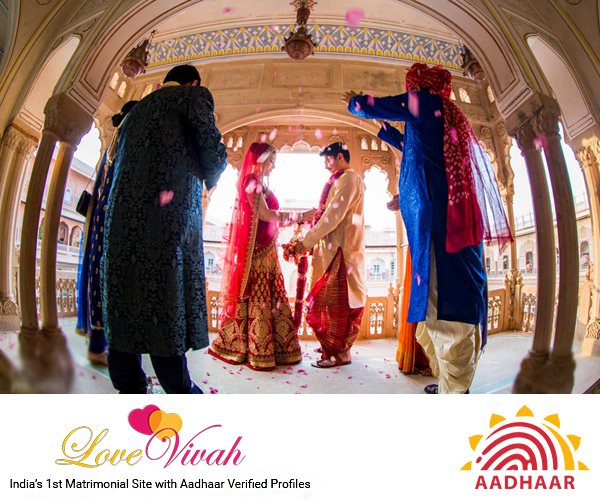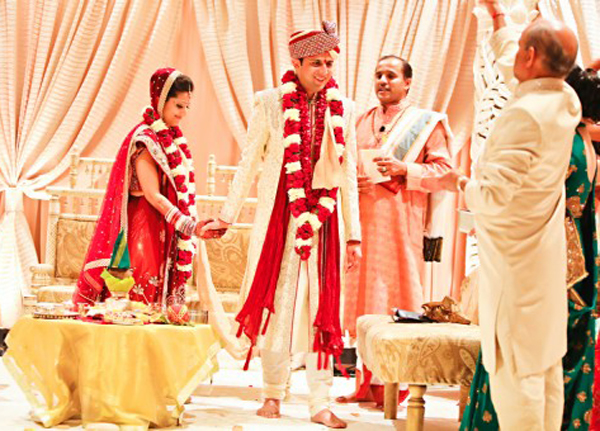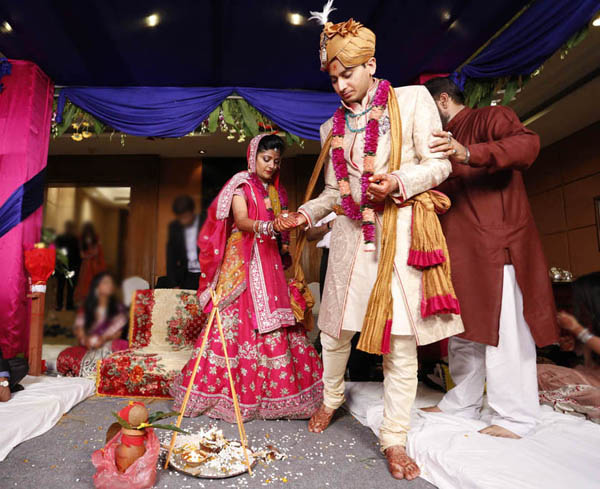Rajasthani marriage ceremonies are very colorful and full of traditions. There are a lot of pre and post wedding rituals. Generally, Rajasthani bride and Groom perform most of the rituals in their respective homes. The parents of Rajashthani bride and groom fix the marriage after matching their horoscope. Rajasthani people generally follow the ancient rituals. After completing all the rituals and traditions, the wedding ceremony got completed. Most of the wedding rituals are divided into pre-wedding and post-wedding rituals.
Engagement ceremony: This ceremony is first ritual of the Rajasthani wedding and mostly conducted at brides’s home. Rajasthani engagement ceremonies are full family affair and conducted in the presence of all family members. In this ceremony, the parents of bride and groom applies tikal in the forehead of would be groom. They present gifts like sweets, clothes, fruits and dry fruits to the would-be-groom and his family. They also offer gifts to the family members of the groom.
Gratha shanti and Ganapati sthapana pooja: This auspicious ceremony takes place in both the families respectively. The Rajasthani bride and Rajasthani groom. This ceremony takes place two days before the wedding. In this ceremony the idol of lord Ganesha is places in the home to receive the blessing for the would-be-bride and groom.
Pithi dastoor: This ceremony is similar to the haldi ceremony of other states. In this ritual, the family members and relatives of both the families applies a paste of turmeric and sandalwood on the body of the would be bride and groom in their respective homes. After this ceremony the bride and groom can’t go out of the home till wedding day.
Mahira dastoor: The ceremony has a different color and rituals. In this ceremony, the bride and groom’s maternal uncle offer gifts and other things to the family members and relatives. These gifts include gold and silver jewelry, clothes, fruits, dry fruits and other things.
Palla ceremony and Janev: In this rituals, the relatives of the bride offer clothes, jewelry and gift to the bride before the wedding. On the other hand, ‘Janav’ on the other hand, ‘Janav’ ceremony is conducted in his house. The groom is dressed in saffron or yellow color during the hawan. After the hawan ceremony, the groom wears the sacred thread and it is known as jenav.
Nikasi ceremony: This ceremony is conducted before the barat procession. In this ritual, the groom wears the sehra on his head. After this the sister of the groom applies kajal in his eyes and applies golden thread on the neck of the mare. After that the family starts the barat procession.
Barat procession: In this ceremony the groom is typically dressed in Rajasthani attire. Once the groom arrives at the wedding venue, he is welcomed by the family of the bride. The mother-of-bride does the aarti in the traditional way.
Panigrahn: This is a very simple and beautiful ceremony. In this ceremony, the groom holds the hand of the bride and they promise to remain together with each other in part and condition in life.
Pheras: In this ceremony, the bride and groom takes pheras together around the sacred fire. The priest chants the holy mantras and scripts. In Rajasthani wedding four phera are done around the holy fire and three pheras are done later near the entrance.
LoveVivah.com Rajasthan matrimony site gives marriage profiles of Rajasthani brides and grooms. Find your life partner with Aadhaar matchmakings of Baniya matrimonial resumes.



